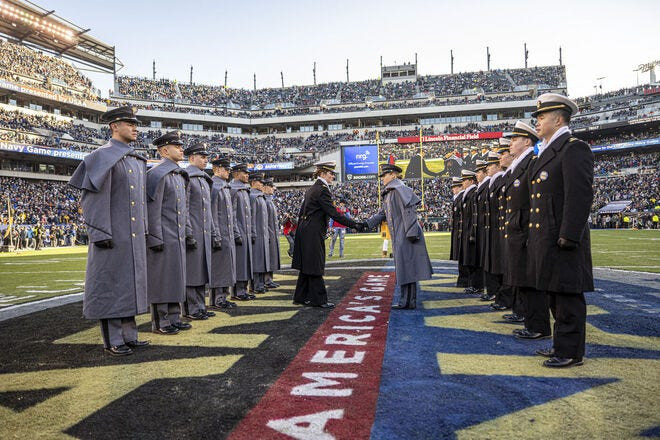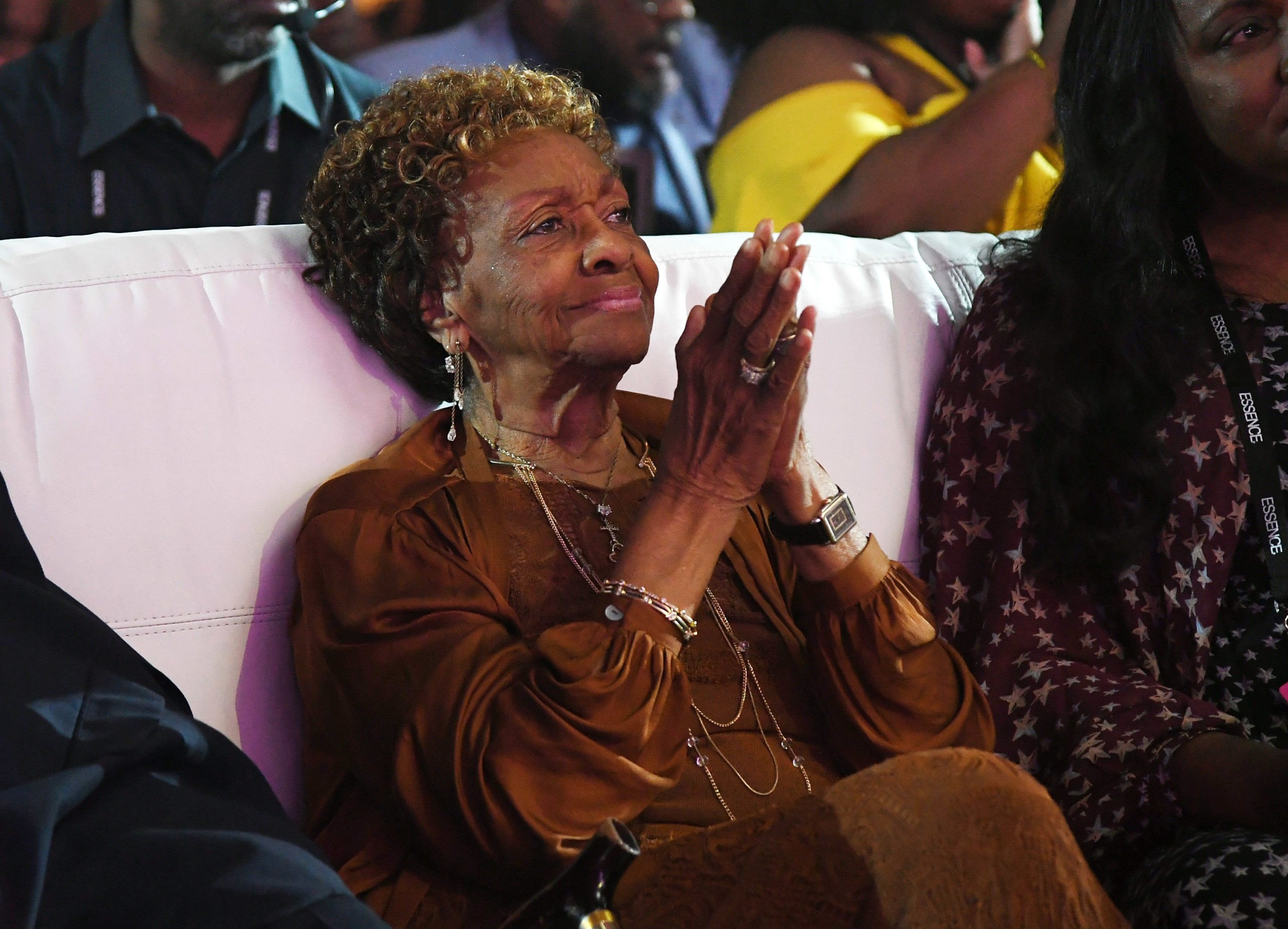Trump, Vance, and Penny: An Unlikely Trio at the Army-Navy Game
President-elect Donald Trump's presence at the highly anticipated Army-Navy football game on Saturday wasn't just another high-profile appearance; it was a strategic move, a display of power, and a carefully curated photo-op. Flanked by Vice President-elect JD Vance and other key allies, including House Speaker Mike Johnson, the event became a microcosm of the political landscape. The 125th Army-Navy game, a cherished tradition, was imbued with an unprecedented level of political significance.
Key Appointments and Cabinet Picks
The event, however, transcended the sporting spectacle. It served as a backdrop for Trump to highlight his incoming administration. Trump used the occasion to further solidify his power by announcing several significant appointments. Former Congressman and Truth Social CEO Devin Nunes was appointed as chair of the President’s Intelligence Advisory Board. Trump lauded Nunes' experience and described him as a key figure in “exposing the Russia, Russia, Russia Hoax,” a claim which is still highly contested among the public.
This appointment comes alongside the announcements of Bill White as the US Ambassador to Belgium and Troy Edgar as the deputy secretary for the Department of Homeland Security. These appointments provide further insight into the President-elect's approach to building his administration. These selections, publicized through posts on Truth Social, showcased Trump’s direct communication style and engagement with his loyal base. The appointments also illustrated the emphasis Trump is placing on loyalty and experience in constructing his team.
A Controversial Guest
However, one guest overshadowed even the significance of the appointments themselves: Daniel Penny. Invited by Vice President-elect JD Vance, Penny’s presence caused a stir. Recently acquitted of criminally negligent homicide in the death of Jordan Neely, Penny's presence underscores the political polarization surrounding the case. The acquittal has been celebrated by right-wing figures who view Penny as a hero, while critics see the decision as an illustration of injustice and racial bias in the legal system. Vance defended Penny, praising his “courage,” adding fuel to an already raging controversy. The invitation sparked immediate criticism, and several reports speculated on the potential impact of this move on the incoming administration's public image. It highlighted the president-elect’s willingness to engage in such controversial politics.
Political Implications of the Gathering
The game offered Trump a platform to consolidate support and project an image of strength. His presence at the event highlighted the deep bond he has established with the military and right-wing voters. The symbolic power of the Army-Navy game—a contest between two respected service academies—aligned perfectly with Trump's ongoing efforts to cultivate a strongman image. The presence of many key figures, including Senator Ron DeSantis and Speaker Mike Johnson, amplified this impact. It was a strategic maneuver, reinforcing his grip on the Republican Party and showcasing the unity within his newly formed political alliances.
Senate Confirmation Hearings and Allegations
The game also served as an implicit show of support for his controversial defense secretary pick, Pete Hegseth, who faces serious allegations of misconduct. The confirmation hearings loomed large over the political atmosphere of the event. Key senators have voiced concerns, demanding accountability, and emphasizing that the selection of such a significant position requires thorough vetting. The fact that Trump chose to include Hegseth at such a high-profile event demonstrates a level of confidence and defiance in the face of ongoing controversies.
A Show of Unity, Strength, and Controversy
Trump’s appearance at the Army-Navy game was not merely a casual outing. It was a masterclass in political maneuvering, showcasing a carefully selected group that underscored both his commitment to his political loyalists and his willingness to embrace highly controversial figures. The event highlighted the ongoing political polarization within the country, and the profound influence the incoming administration will have on shaping the future of American politics. The presence of such a diverse set of figures—from high-ranking officials to a controversial figure like Daniel Penny—pointed to a deliberate effort to rally support within different segments of his power base. The selection of this event, which holds significant weight in American cultural traditions, is not an oversight. It emphasizes the President-elect’s efforts to integrate various factions into his political plan.
The choice to include figures like Penny alongside more traditional political figures such as House Speaker Mike Johnson and Governor Ron DeSantis reflects Trump's embrace of a broader political strategy. It illustrates a clear intent to reach beyond traditional political circles, and instead focus on a broader base that is centered around themes of patriotism, military strength, and a general feeling of rebellion against established institutions. The selection reflects a political calculation meant to rally broad-based support, irrespective of traditional political alignments or ideological boundaries. The gathering offered a glimpse into the composition and character of the incoming administration, leaving many to speculate about the future path of American politics.

















